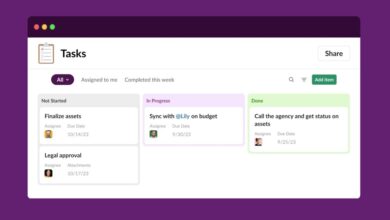
A telecommunications engineer, Ángel Valero has worked for Telefónica for eight years, a company in which he holds the position of Director of Business Systems and Services. Since his arrival at the company in 2013, he has led large process digitization projects, such as the transformation of the group’s commercial systems.
In addition, in his position as COO of Telefónica TGT, a subsidiary created in 2010 to unify the information systems of the entire group, he is responsible for the management of teams in charge of developing projects in areas such as maintenance applications and the PMO department that defines all kinds of process standards.
From this unit, all projects that are going to have a global scope are designed and executed. In this space, Telefónica is actively collaborating with different companies, such as Appian, which, thanks to its offer of low-code technologies, helps organizations develop applications up to 20 times faster than they would in an environment of classic programming. In this interview, which we extract from our eBook “Digital Transformation: the best success stories of 2021”, Valero talks to us about the way in which Telefónica is integrating low-code in several strategic IT projects and its collaboration with Appian,
[MCPRO] What needs did Telefónica have before starting to collaborate with Appian?
[Ángel Valero] At Telefónica, and especially in the area dedicated to the corporate world, we have many departmental systems, with a great abundance of what is called “Shadow IT” in these areas.
They are solutions that work well for a department, and that are usually developed by an engineer to respond to a need. However, they usually have the problem that they lack an end-to-end view of the entire process.
The problem is that lacking this overview, it becomes a manual process, since you have to exchange files, interpellate different users through email, etc. And the digitization process, with what is positive, remains half.
By starting to work with Appian we tried to solve this problem. We started with a project in the area of legal advice in which what we tried was that the user did not lose the ability to work with new developments, that even they could configure their tools and capabilities, through simple and manageable applications.
At the same time, from an IT point of view, we were interested in them being solutions that we could control easily, in a way that would facilitate governance from the point of view of security and operations management. We also needed it to be a scalable solution that could serve the entire group. There, different alternatives began to be considered and we found Appian.
[MCPRO] What was this legal advice project?
[Ángel Valero] We detected that legal advice was one of the areas that was least digitized within the group. At Telefónica there are more than 500 lawyers and we work with more than 400 firms throughout the group. To this we must add the fact that we do it in 14 countries and 4 languages.
The company is also very intensive in the consumption of legal advice, especially in the area of creation and sale of companies. With Telefónica Tech, for example, we are creating partnerships in each of the countries. We also have a large volume of work associated with the management of all the documentation.
When we considered the need to digitize the area, we discovered that Appian gave us all the process management “end to end” with a very simple low-code platform; It gave us the capabilities of document management (we could centralize all the documentation and the signing of contracts) as well as maintenance in the cloud, so that it was a global solution and exportable to different countries.
[MCPRO] From there, you begin to see that there are other projects in which the use of low-code can be interesting
[Ángel Valero] Yes, it didn’t take long to see other utilities. For example, to rethink the B2B project for end-to-end management of the entire sales process, from the generation of the offer to the order itself.
It was not easy, because we have a stock based on the fixed world, which is where we have traditionally found the most value. But to this, in recent years a stock based on the mobile world and another associated with data have been added.
All of this has resulted in us having to manage a lot of legacy systems in the processing and forecasting world. It is true that in other countries we have chosen to set up a new system from scratch, creating a simplification of systems. And this, although it is true that it benefits the systems department since it allows it to better manage this area, the business does not really benefit from it.
In Spain, on the other hand, we have said to ourselves: we are going to isolate the end user from the complexity that this technology may have and allow it to have that end-to-end capacity to reach the market as soon as possible. Let us ensure that you can generate efficiencies in your processes and in the development of new services without having to start from scratch.
We decided to put Appian technology throughout the fulfillment and provisioning part in a way that isolates legacy systems, gives end-user visibility into where the provisioning and fulfillment process is, and generates an end-to-end way. homogeneous.
[MCPRO] What other use cases do you hope to launch in the future?
[Ángel Valero] The legal advice project we are talking about, we want to replicate it and take it to other areas such as compliance, which have a similar complexity and a similar degree of digitization, with a great weight of the processes that are still carried out manually.
We also want to grow in the management and signing of contracts, so that all purchasing processes have an associated security layer. The great objective has always been to reduce technological complexity. Thanks to Appian, we were able to carry out processes in 6 months that could have taken between 3 and 4 years if we had done it with other technologies such as Full Stack.
[MCPRO] What makes you choose Appian and not other low-code solutions?
[Ángel Valero] We had already done some tests with other tools. However, we discovered that they generated a lot of code, so in the end we created a new legacy based on another platform.
We then began to investigate other applications that might make more sense to us, that really respond to our needs. And Appian in that sense, is one of those that I know, the low-code platform with which you have the least dependency. Other solutions what they propose is actually an “addon” on a custom development, but it is not what we needed.
We wanted a solution that could be maintained by almost any user. We also really liked the flexibility you have in your licensing. Telefónica is a complex company and the truth is that Appian offers different possibilities depending on the users, to the point that we can create a global licensing mechanism.
On the other hand, it gave us the ability to grow in a truly pay-per-use mode. Other solutions in the end are not so pay per use: five years of contract and if you do not use it, you can put up with it. In this we have been growing little by little, adding more users, until a time has come in the process that we have been interested in a global license.
[MCPRO] What impact do you think the low code will have in the medium term on large companies like yours?
[Ángel Valero] I think a lot. The great system transformations based on great closed solutions are over. We are going to a distributed world in which we will be able to choose what
best of each of the solutions.
From there, you have to integrate all that, you have to link it and that’s where BPM or low-code solutions like Appian come in, which offers this facility through its connectors and which allow you to connect to anything. They offer the ease of not having to have a database in the system to generate the relationship with the different systems.
All data can be kept exactly where it was, giving a great final insight to the user. Along with this, I believe that robotization is going to have a great impact. A low-code solution together with the RPA capacity for certain processes makes the difference.




